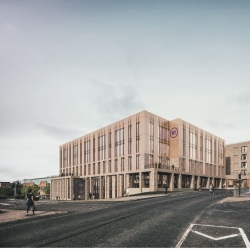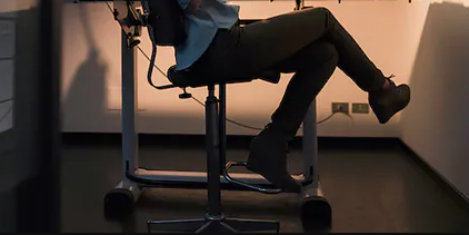To provide the best experiences, we use technologies like cookies to store and/or access device information. Consenting to these technologies will allow us to process data such as browsing behaviour or unique IDs on this site. Not consenting or withdrawing consent, may adversely affect certain features and functions.
The technical storage or access is strictly necessary for the legitimate purpose of enabling the use of a specific service explicitly requested by the subscriber or user, or for the sole purpose of carrying out the transmission of a communication over an electronic communications network.
The technical storage or access is necessary for the legitimate purpose of storing preferences that are not requested by the subscriber or user.
The technical storage or access that is used exclusively for statistical purposes.
The technical storage or access that is used exclusively for anonymous statistical purposes. Without a subpoena, voluntary compliance on the part of your Internet Service Provider, or additional records from a third party, information stored or retrieved for this purpose alone cannot usually be used to identify you.
The technical storage or access is required to create user profiles to send advertising, or to track the user on a website or across several websites for similar marketing purposes.
 While society has become more aware of psychological abuse in intimate or family relationships, psychological abuse in the workplace is more common and complex than we think, according to new research from NEOMA Business School, Rotterdam School of Management (RSM) at Erasmus University and Durham University Business School. (more…)
While society has become more aware of psychological abuse in intimate or family relationships, psychological abuse in the workplace is more common and complex than we think, according to new research from NEOMA Business School, Rotterdam School of Management (RSM) at Erasmus University and Durham University Business School. (more…)







 A new report from the
A new report from the 
 With A level results day marking a new cohort of young people entering the toughest labour market for a generation, the
With A level results day marking a new cohort of young people entering the toughest labour market for a generation, the 
 New research from the US based
New research from the US based 
 There was a spring in the step of the central London office market in Q2 2021 with more businesses committing to new office space, as plans to return to workplaces took shape. Research by
There was a spring in the step of the central London office market in Q2 2021 with more businesses committing to new office space, as plans to return to workplaces took shape. Research by 
 There has been a further improvement in sentiment across the global corporate real estate market, according to the latest
There has been a further improvement in sentiment across the global corporate real estate market, according to the latest 
 IPSE (the Association of Independent Professionals and the Self-Employed) has responded to the UK Labour Party’s proposal for a single worker status saying that although it is welcome the party is attempting to clear the confusion around worker rights, the party’s proposals fail to grasp the nettle of employment status. The comment comes after Labour announced it would create a single worker status to “replace the three existing employment categories” of employee, worker and dependent contractor. Labour said the category would encompass “all but the genuinely self-employed”.
IPSE (the Association of Independent Professionals and the Self-Employed) has responded to the UK Labour Party’s proposal for a single worker status saying that although it is welcome the party is attempting to clear the confusion around worker rights, the party’s proposals fail to grasp the nettle of employment status. The comment comes after Labour announced it would create a single worker status to “replace the three existing employment categories” of employee, worker and dependent contractor. Labour said the category would encompass “all but the genuinely self-employed”. 
 In face of growing skills gaps in the UK – post pandemic and Brexit –
In face of growing skills gaps in the UK – post pandemic and Brexit – 
 As increasing numbers of companies offer post-pandemic hybrid working for employees, the challenges it poses to maintaining culture, morale, effective training and staff loyalty have been disclosed in a new survey of senior executives.
As increasing numbers of companies offer post-pandemic hybrid working for employees, the challenges it poses to maintaining culture, morale, effective training and staff loyalty have been disclosed in a new survey of senior executives. 
 New research commissioned by
New research commissioned by 
 Many governments are increasingly approaching artificial intelligence with an almost religious zeal. By 2018 at least
Many governments are increasingly approaching artificial intelligence with an almost religious zeal. By 2018 at least 









